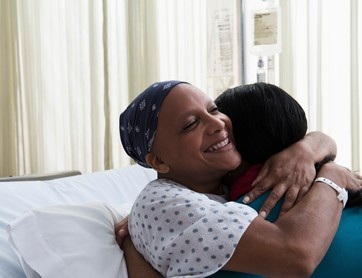
Traumatic events and experiences can elicit a wide range of reactions. In order to help your loved one cope with trauma, it helps to know some of the symptoms that people experience. Here are a few:
- Crying, panicking, or intense fearfulness when reminded of the trauma
- Withdrawal or pulling away from others
- Having difficulty sleeping, including falling asleep, waking up in the night, and nightmares
- Anger or irritability, seeming “on edge,” anger/emotional outbursts
- Trying to avoid activities that remind them of trauma
- Self-blame and self-criticism
- Difficulty getting out of bed, going to work, and participating in life activities
- Use of drugs or alcohol to cope
- Being really attached, having difficulty being alone or separating from you
It can be remarkably difficult to know how to respond. Moreover, when it comes to our friends, our children, and our partners, sometimes it can be easy to see how their difficulty affects us when anxiety and fear take over. We notice that we are not sleeping either, or that we suddenly can’t do the things we used to do with the ones we love. When this happens, we can sometimes push for our loved ones to get past their pain, in ways that aren’t always helpful.
Here are a few helpful things to keep in mind to help your loved one cope and heal from a traumatic experience:
Be Patient and Open.
Trauma won’t always look the same, and it might be hard to recognize at first. We might even be confused about why our loved ones suddenly respond so differently to the world. Sometimes, our loved ones just seem irritable or sad, or we might notice that they aren’t behaving in the ways that we would want or expect. Try your best to be understanding and open, and recognize that it may take time for you to understand what they’re going through. Remember that it’s okay to feel frustrated or upset yourself, but that getting frustrated with your loved one will likely not help him or her to heal.
“Try: writing a small note, buying flowers, making sure to regularly say ‘I really love you’ or ‘I care so much about you,’ or noticing something you appreciate about them.”
Validate first.
This is a good strategy for any kind of distress. Before asking how to fix, or what to do, just validate your loved one’s feelings, and let them know that you’re there for them. Try phrases like, “It’s okay to be sad” or “I’m right here with you.” We don’t have to understand an emotion to validate that it’s there, and that sometimes, it’s incredibly painful.
Let your loved one guide the conversation.
If they are hesitant to talk to you about what happened, don’t push it. Encourage them to talk if they want to, let them take breaks from activities if they need to, and let them feel that they have the autonomy and control over their own experience. You may still offer activities, social outings, communication, and life responsibilities – just be a little bit more flexible and in how you respond.
Encourage and help with self-care.
Consider helping out with meals, building in time together where you can rest and relax, and getting out for walks. When you’ve experienced a trauma, and your body is running adrenaline far more than it should, it is exhausting. Helping with some of these “basics” may help to alleviate some stress.
Finally, to help your loved one, let them know that you value them.
It can’t hurt to make an extra effort to communicate care, value, and appreciation, and especially when the world feels really scary (as it does after trauma), it’s so good to know that you’ve got people who are with you. Try: writing a small note, buying flowers, making sure to regularly say “I really love you” or “I care so much about you,” or noticing something you appreciate about them.

If you think your loved one could benefit from some professional help, there are resources available. Don’t push, but let them know that you’ll help them find someone when they’re ready. Hope Springs offers treatment for trauma, both in children and adults.
For even more comprehensive descriptions of trauma symptoms, responses, tips, and services available, click on this link.
![]()
